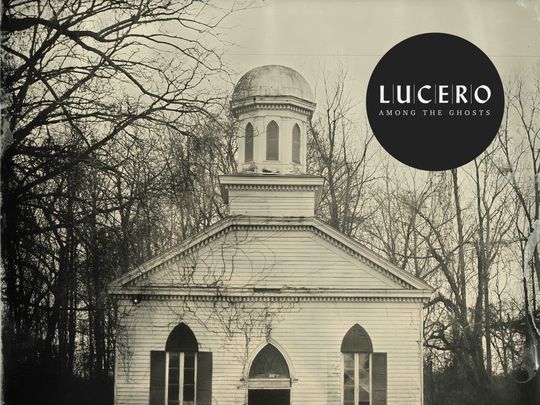Rating: 7/10
In a just world, Bri Bagwell would be a mainstream country star, and this album would be certified gold. It probably could have done that in 2004. It’s firmly country, but laced with elements of pop and rock so that it would fit well on mainstream radio. It’s hook-driven and catchy, yet it doesn’t insult the intelligence of the listener. It’s at once thoughtful and accessible, personal and universal, authentically country but still commercial enough to appeal to a wider audience. And yet, Bri Bagwell remains fiercely independent and unfairly obscure, fighting to be heard in a Texas scene where success for women is arguably harder to come by than in Nashville.
This album is a great case for the value of pop country, for the fact that commercial appeal doesn’t necessarily mean a drop in quality, and perhaps most of all for the care for song craft in Texas music. Now, there’s some truly awful music coming out of Texas and Oklahoma; don’t be one of those people who just thinks music sounds better when it’s not made in Nashville and is no longer a discriminating listener. But generally, much of the more commercial side of Texas country does tend to be more substantive than mainstream Nashville, and this record is a great example of that. It’s not trying to reinvent the wheel, and you won’t get something groundbreaking lyrically, but the hooks are strong and clever, and this is exactly what you want from an artist like Bri Bagwell.
As mentioned, the hooks are the strongest asset of the record, and none is more interesting than in “Cheat on Me,” where Bagwell opens the song with the immediately intriguing line, “I wish you would cheat on me.” She goes on to reveal that basically, she knows she doesn’t love this man, but he hasn’t done her wrong, so she feels bad hurting him. If he would just cheat on her or lie to her, she could leave without breaking his heart or feeling guilty. It’s a really blunt way of putting things, but if we’re honest, I think many of us have probably felt similarly at one point, dreading having to hurt someone for whom we care deeply, or wishing we loved someone back but knowing it will never happen.
“As Soon as You” is also really well-written, with lines like “as soon as you try to fence me in, I’m breaking loose” and “as soon as you bring up a ring, I’m nowhere to be found” explaining that she’s just not ready to settle down. Then we get the chorus, where she admits that “if you wait patiently, eventually I’ll wanna say I do, I just won’t get there as soon as you.” In a complete antithesis of this song, we have “Feel Like Home,” in which she’s the one trying to convince the man to settle down, saying, “if you don’t slow down you’ll never know if a house could ever feel like home.” I enjoy both of these songs, but they are a bit troubling in light of each other; the former feels more personal to Bri, and she has said the whole album is quite personal to her, so it makes the latter song feel slightly out of place. Individually, however, they hold up as two of the strongest tracks on the record.
Most of these songs are upbeat, but it’s nice to see a softer, more tender side to Bagwell toward the end of the album. In “Ring a Bell,” she’s singing from the perspective of the other woman, lamenting their choices to commit adultery and ruin three lives. There’s a really cool little nugget of songwriting here in the line, “you took the ring off your hand, put it in the one nightstand, next to the King James.” The album closer, “Empty Chairs,” finds Bri at her most vulnerable, as she sings of the ups and downs of being in the spotlight and asks God to be there with her even on the nights when she sees empty chairs from the stage. This is her pouring out her soul, even going so far as to admit to finding her worth in the number of tickets she’s sold. It’s just a deeply personal confession, and it’s a privilege to the listener to be let into her delicate head space here.
Bri Bagwell’s vocals are definitely a strength here. She displays a pretty extensive range and shows both technical skill and the ability to interpret a lyric. Here’s one more artist in the independent scene proving vocal ability still matters as much as a good piece of songwriting. That said, she lacks something distinctive about her voice to really make her stand out. It comes out in flashes, like in the slight rasp in “If You were a cowboy” and “Cheat on Me,” but I’d like to see her develop it more. That quality in her voice is really unique and would serve her well if she used it to her full advantage.
There isn’t a bad moment on the album, and nothing feels like filler, but the weakest point does come in the heart of the album, with “I Can’t be Lonely” and “Graffiti.” These are both breakup songs, and both are fine, but neither really has a strong hook like the rest of the tracks. Bri Bagwell’s vocals make these songs better, but neither of them are very memorable. You won’t skip them, but they won’t be the ones you keep getting stuck in your head either.
This is just a really solid, well-written, wonderfully sung album. The hooks are smart, the melodies are memorable and engaging, and Bri Bagwell is a strong vocalist with range and power. This is exactly the kind of record I would love to see in the mainstream in 2018. A nice slice of modern country for those who appreciate a good lyric but still like a more contemporary sound. Go check this album out, and get to know Bri Bagwell.



